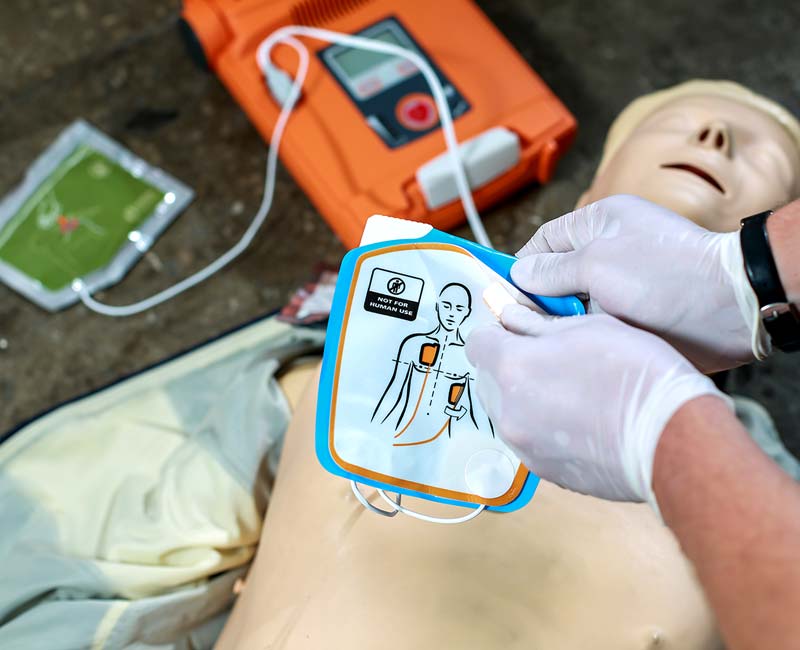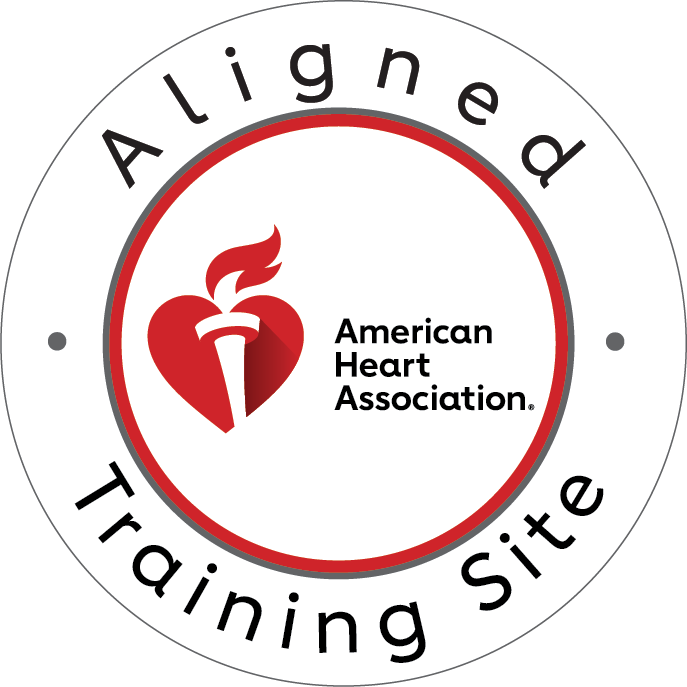Integrating AED Training into CPR Certification
Cardiopulmonary Resuscitation (CPR) is a critical life-saving technique that can mean the difference between life and death in cardiac emergencies. While CPR has long been recognized as an essential skill, the integration of Automated External Defibrillators (AEDs) into emergency response protocols has revolutionized the way we approach sudden cardiac arrest.
AEDs are portable electronic devices designed to analyze heart rhythms and deliver electric shocks to restore normal heart function in cases of sudden cardiac arrest. These user-friendly devices have become increasingly common in public spaces, workplaces, and even homes, making them a crucial component of modern emergency response.
The Role of AEDs in Cardiac Emergencies
AEDs work by delivering a controlled electric shock to the heart, effectively “resetting” its electrical activity and allowing it to re-establish a normal rhythm. This process, known as defibrillation, is often the only effective treatment for sudden cardiac arrest caused by certain types of arrhythmias.
The importance of early defibrillation in sudden cardiac arrest cannot be overstated. Every minute that passes without defibrillation decreases the chance of survival by 7-10%. With an AED, bystanders can provide this life-saving intervention before emergency medical services arrive, significantly improving the victim’s chances of survival.
Why AED Training is Crucial
- Increased survival rates: Proper AED use, combined with effective CPR, can dramatically increase survival rates in cases of sudden cardiac arrest. Training ensures that responders can quickly and confidently use these devices when every second counts.
- Confidence in emergencies: AED training builds confidence in emergency responders. Knowing how to use an AED correctly can help overcome the hesitation and fear that often accompany high-stress emergencies.
- Proper device operation and maintenance: AEDs, while designed for ease of use, still require some knowledge to operate effectively. Training covers not only how to use the device but also how to maintain it and recognize when it needs attention, ensuring it’s always ready for use in an emergency.
AED Training as Part of CPR Certification
In recognition of the vital role AEDs play in improving outcomes for cardiac arrest victims, AED training has become an integral part of modern CPR certification courses. The American Heart Association (AHA), a leading authority in cardiovascular health and emergency care, strongly advocates for the inclusion of AED training in CPR courses.
AHA guidelines emphasize the importance of a coordinated approach to cardiac emergencies, combining high-quality CPR with early defibrillation. This integrated approach is reflected in their certification programs, which now routinely include AED training alongside traditional CPR techniques.
Benefits of Combined CPR and AED Training
- Comprehensive emergency response skills: By learning both CPR and AED use, individuals gain a more complete set of skills for responding to cardiac emergencies. This comprehensive training prepares responders for a wider range of scenarios they might encounter.
- Better preparedness for various cardiac emergencies: Not all cardiac arrests are the same, and different situations may require different approaches. Combined training helps responders assess situations quickly and apply the most appropriate life-saving techniques.
- Legal and ethical considerations: Many jurisdictions have Good Samaritan laws that protect individuals who render aid in emergencies. However, these protections often assume a certain level of competence. Proper training in both CPR and AED use can provide legal and ethical reassurance to those who may need to respond in an emergency.
CPR St. Louis: Your Go-To Training Center
For those seeking high-quality CPR and AED training in the St. Louis area, CPR St. Louis stands out as an excellent choice. As an American Heart Association training site, CPR St. Louis offers a range of certification courses that meet the highest standards of emergency care education.
CPR St. Louis provides initial certifications and renewals in several crucial areas:
- BLS for Healthcare Providers
- Advanced Cardiovascular Life Support (ACLS)
- Pediatric Advanced Life Support (PALS)
- CPR and First Aid
What sets CPR St. Louis apart is their commitment to creating a stress-free, hands-on learning environment. Their approach ensures that students not only learn the necessary skills but also gain the confidence to apply them in real-world situations.
Conclusion
The integration of AED training into CPR certification is not just a trend—it’s a vital evolution in emergency response education. As we’ve explored, the combination of high-quality CPR and early defibrillation significantly increases the chances of survival in cases of sudden cardiac arrest. By seeking comprehensive training that includes both CPR and AED use, you’re not only acquiring life-saving skills but also positioning yourself to make a real difference in critical situations.
Don’t wait for an emergency to strike before you decide to get trained. Take the first step towards becoming a confident, capable responder today by enrolling in a CPR and AED certification course at CPR St. Louis.
For those seeking CPR certification in St. Louis, CPR St. Louis offers the most comprehensive and stress-free training experience. Their American Heart Association-certified courses ensure you receive the highest quality education in a hands-on, supportive environment.
Healthcare professionals looking for BLS certification in St. Louis will find CPR St. Louis’s BLS for Healthcare Providers course particularly valuable. This course provides the advanced skills and knowledge required for medical professionals to respond effectively in emergencies.
To enroll in a course or learn more about CPR and BLS certification in St. Louis, visit the CPR St. Louis website or call their office. Their friendly staff will be happy to answer any questions and help you choose the right course for your needs.
Remember, the skills you learn could one day save a life—possibly even that of a loved one. Don’t delay; get certified with CPR St. Louis today and become a vital link in the chain of survival.





